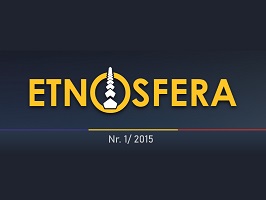Persistența memoriilor: securitatea societală bască și funcția terorismului
The persistence of memories: Basque societal security and the function of terrorism
Author(s): Alexandru-Valentin DuțuSubject(s): Sociology, Security and defense, Criminology, Politics of History/Memory, Peace and Conflict Studies
Published by: Editura Academiei Române
Keywords: terrorism; social capital; social linkages; Basque nationalism;
Summary/Abstract: As contemporary history has shown, the concept and phenomenon of terrorism is a complex one, having multiple causes, developments and generating diverse modalities of response. That being said, it is the author’s belief that even this type of social enterprise can have a common root from which variants can stem and, as such, this papers is focused around the pursuit of a theoretical model by which one can start to understand the way terrorism functions. For this, the research is centered on the Basque terrorist group ETA. Using a sociological approach, the analysis aims at seeking out a group identity-based generating cause, modes of organization of a terrorist group and, most importantly, the connection between said group and the larger community from which it hails. Using concept and theories derived from authors such as Putnam, Granovetter, Portes and Rae, the author wishes to show that, in essence, terrorism is a response to the severing of social linkages between the different ethnic and religious communities which make up societies on the whole and the attempt to generate a new status quo. Terrorism is much more the pursuit of negotiation through other means (to paraphrase Clausewitz) and much less an irrational act driven by fanatism.
Journal: Etnosfera
- Issue Year: 25/2015
- Issue No: 1
- Page Range: 1-19
- Page Count: 19
- Language: Romanian

